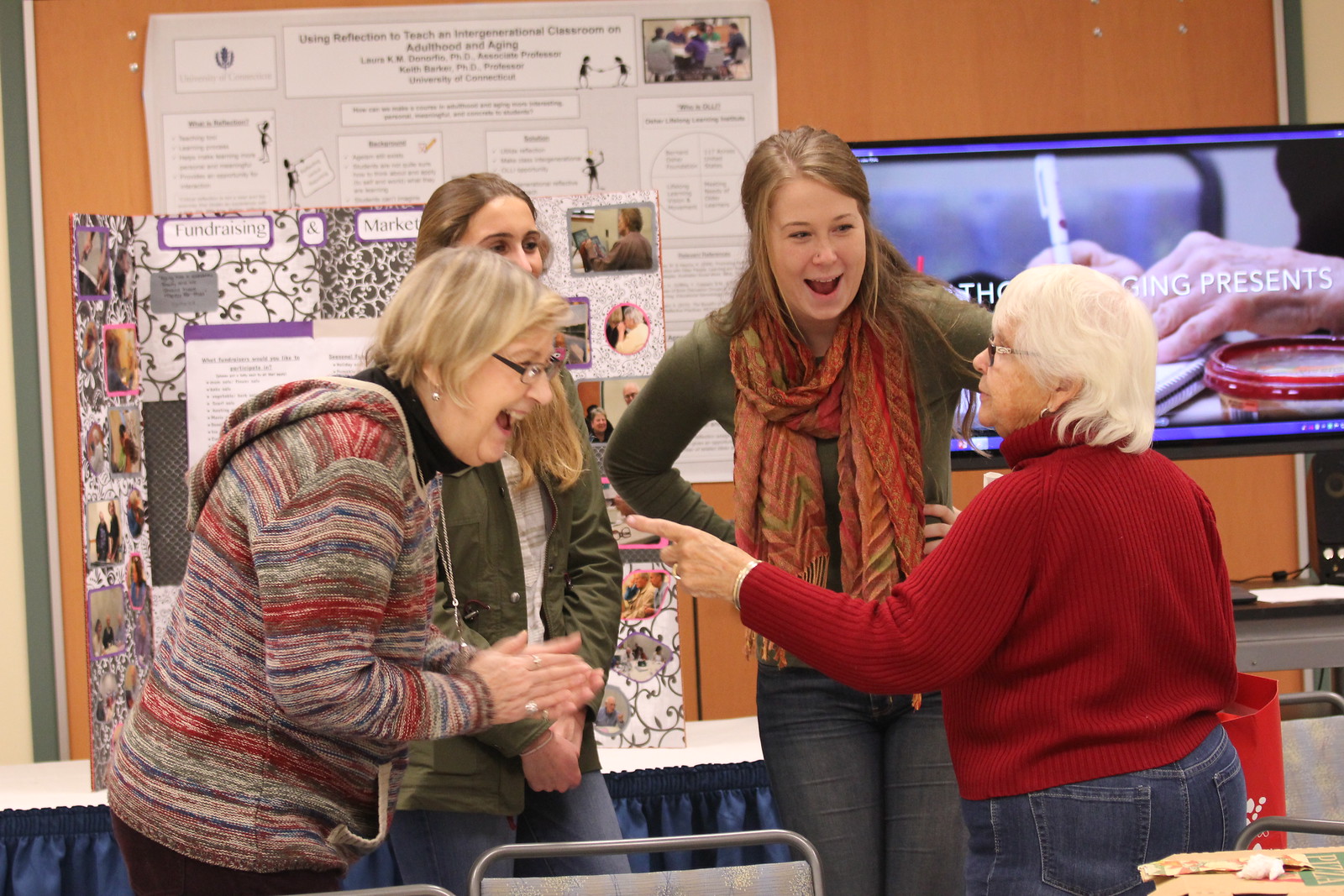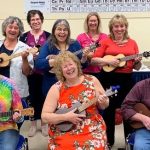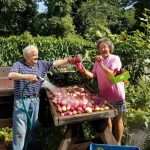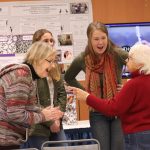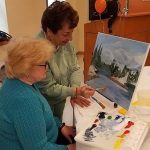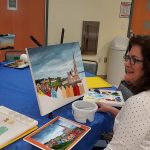Most college students don’t get a chance to take many classes in an area of interest outside of their major. The opera … growing vegetables … a specific history topic … or even learning how to play a ukulele. Those are all fine, but there’s a degree to earn.
That’s not the case if you are a life-long learner and part of the Osher Lifelong Learning Institute (OLLI) at UConn Waterbury. There are 124 OLLI institutes nationally and all are partnered with universities and colleges. UConn’s is the only one in Connecticut.
OLLI is designed for individuals 50 and older and, for the most part, retired. OLLI offers over 100 classes annually of all types to meet a particular interest or create a new one.
“People are really thirsting for that academic experience as they retire,” says Fiona de Merell, the director of the OLLI program at UConn. “It might be that they had a long university career themselves. Many of them didn’t have the chance to go to university and they want that feeling of being in the classroom. They enjoy sitting there with their peers and learning from somebody who is not only an expert, but passionate about what they do.”
OLLI offers a broad curriculum that covers both experiential and academic learning. The instructors are all volunteers and sometimes are teaching in subjects they too had an outside interest in exploring.
“We had a retired biochemistry professor from Princeton and one of his personal passions was English literature, so he taught that,” says de Merell. “He came to us with this incredible teaching background, but he teaches something else that he enjoyed sharing.”
De Merell says the program is always seeking new faculty members who have retired from teaching to instruct classes in OLLI.
OLLI operates with two staff members and a Leadership Council, which is led by president Mila Limson, a retired town planner.
“I was fortunate to be able to be an early retiree and I wanted to spend more time with my family, do something for myself and give back to the community,” says Limson. “When I discovered OLLI and life-long learning, I thought it was a great opportunity for me to keep a quality of life that included education. Some retirees get very stagnant and OLLI is an opportunity for engagement. You get that engagement at your job, and when you are in retirement, you still need that. The socialization components are as critical as the educational components.”
One of the first classes that Limson took was on opera – a subject she didn’t know a lot about, although she had a great interest in studying it.
OLLI also offers hands-on classes like the “Greening of Waterbury,” where students learn to garden in Fulton Park. The class has grown into a community service project where produce grown during the class is donated to community organizations in the city. There are some OLLI members that even cook the vegetables and serve them to those in need.
“We are a community organization at every level,” says de Merell.
The program is multigenerational, as there are students from their late 50s to those well into their 90s – from Baby Boomers to the Greatest Generation. There are some UConn students that teach classes, making the range even larger.
“The UConn students realize it’s a great place to experience teaching in free and open environment,” says de Merell.
Like everything else in the world, when the COVID-19 pandemic hit last March, it affected the way OLLI did business. The program went online for the rest of the spring semester and has been so ever since.
“We had always talked about distance learning, but it always seemed hard to figure out for our program,” says de Merell. “With COVID-19, we didn’t really have any other choice. It has brought us together in this membership-staff partnership in a way we have not had before. It was tough and exhausting, but it was very important for our members to continue. Isolation is a huge issue for the older segment of the population.”
The challenge became an opportunity, as OLLI had its best summer enrollment in history, and the number of winter enrollees has already doubled. The virtual format has made it easier for people from outside the Waterbury region to enroll in classes.
The winter term begins Monday, Jan. 4, 2021 and registration continues to be open.
It’s the intention of the program to continue virtual classes when the COVID-19 pandemic becomes its own part of history.
“These are students who want to be in the classroom, not doing it to get a degree of fulfill a requirement,” says de Merell. “This is a different level of passion – people who had a career, who have this time and are thinking what do they really want to do with their life, and what is going to add value. They are incredibly engaged in what they do and that is very humbling to be a part of.”
